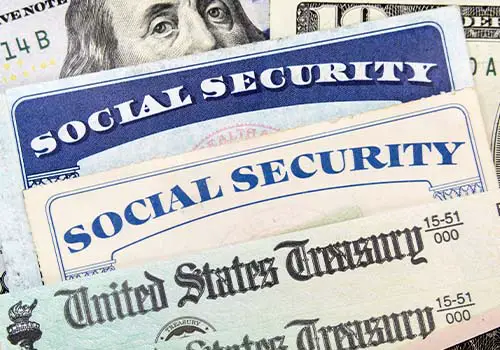Short-term disability (STD) benefits can be a great way for you to replace part of your income if you cannot work due to a disability. Short-term benefits usually have a very short waiting period, and many employers provide a short-term disability insurance plan to their employees at no cost.
While the coverage details vary from plan to plan, most people expect that their disability claim will be approved in most cases. However, sometimes, your insurance company might deny your claim for disability benefits.
We will explain the six most common reasons why your short-term disability claim might be rejected and tell you how you can appeal that decision. Keep reading to learn all the details!
6 Reasons Your Short-Term Disability Claim Might Get Denied
If you have received a denial letter for your disability claim, you might be wondering why your claim was denied. There are a few common reasons why insurance companies deny short-term disability claims. Here are the six most common:
1) The Condition Doesn’t Meet The Definition Of Disability
The specifics of your medical condition can make or break your disability claim. Your insurance policy will detail the medical conditions covered under your plan. It might even specifically list some exclusions as well. This means that your claim could be denied, even though you have paid your premiums and are genuinely disabled. Unlike workers’ compensation, you do not need to have suffered a disability or injury on the job. However, your condition must still meet the definition of a disability as described in your plan details.
Since coverage details vary from one insurance company to the next, you must check your policy documentation to determine whether your condition is covered. For example, some short-term disability policies cover mental health conditions, while others do not. Some cover time off after a C-section for childbirth, while others do not. If your short-term disability claim has been denied, there is a good chance that your condition did not meet the definition of a disability as detailed in your plan documentation.
2) Lack of Medical Evidence
Your claim must be supported by medical records from your doctor, and you must provide that documentation to the insurance company. Disability insurance policies require certain documentation to be provided to support your claim, and failure to provide the proper evidence will result in claim denial.
If your treating physician is completing paperwork and returning it directly to the insurance company as part of your disability insurance claim, you should follow up to make sure the paperwork gets returned on time.
If the insurance company does not receive your medical evidence by the due date they requested, then you are likely to see a disability denial.
3) Insurer Suspects Fraud
While this doesn’t happen often, sometimes people lie about their ability to work. Even though you might have disability coverage, your insurer can deny your claim if they suspect you are lying about your claim.
Perhaps they suspect that medical records have been forged or that you are lying about your ability to work with a specific condition. If you claim that you cannot work, but your insurer sees you working in the yard on social media, then they may suspect you are lying.
Whatever the case, you will get a denial letter if your insurer believes you are lying and attempting to commit fraud. Not only will your claim be denied, but you might even be in legal trouble for lying to your insurance company.
4) Insurer Determines Partial Disability
A lot of short-term disability insurance policies only cover total disability. This means that you must be unable to work and perform any of your job duties during your time of disability. Insurance benefits would only be available to you as a result of total disability.
So, some insurance companies will attempt to classify your disability as a partial disability. They may review the medical evidence and determine that you can still perform some of your job duties; therefore, you are not owed any short-term disability benefits.
While most disability insurance companies are completely honest and would never do this, it sometimes happens. If your claim gets denied as a result of a partial disability finding, you might want to seek legal advice.
5) Pre-Existing Condition Exclusion
Most disability plans have specific exclusions under which they will not pay benefits. One of those is the pre-existing condition exclusion. Under this exclusion, most companies will not pay benefits within the first 12 months of your policy if your disability relates to a condition that you already had at the time of the policy issuance.
The insurer will typically check your medical records to determine whether you received treatment for that condition during the six months prior to the issuance of the policy. If you did, there is a good chance that your claim will be denied under the pre-existing condition exclusion.
6) Elimination Period Exclusion
Your eligibility to receive disability benefits usually requires that you be totally disabled throughout the elimination period of your policy. If you return to work or your condition improves during this period, your claim will probably be denied.
Since the elimination period for short-term disability is usually very short, only a week or two. This exclusion is fairly rare for short-term disability. However, many long-term disability claims are denied because of the elimination period exclusion.
KEY TAKEAWAYS
- There are several reasons your claim may be denied, such as lack of medical evidence, suspected fraud, and a pre-existing condition exclusion, to name a few.
- Short-term disability typically only lasts six months, while long-term disability can last up to 10 years in some cases.
- If your initial short-term disability application is denied; don’t panic, you will have the opportunity to appeal the decision and there is still a high likelyhood you could be approved.
Appealing Your Short-Term Disability Benefits Decision
Just because your claim was denied does not mean that you are not truly disabled and entitled to benefits. Many claims that are initially denied end up getting approved on appeal. The appeals process varies from one insurer to the next, so you should check your claim form or other plan documentation for the specific appeals process for your insurer.
It will typically involve filing a written notice of appeal and providing specific evidence to refute the denial of the claim. If your claim is covered under the Employee Retirement Income Security Act (ERISA), your appeal must be filed within a certain period of time, or you could lose your right to an appeal.
If your appeal is denied by the insurance company, but you genuinely believe that you are owed benefits, it might be time to get a disability lawyer involved. These attorneys often help claimants through this process every day.
Your attorney might have to file a lawsuit in court to get your insurance company to pay your claim. Your attorney can listen to the details of your case and advise you whether or not you are likely to be successful.
Must read articles related to Disability
- A complete guide on “How to Apply for Disability“.
- Can you get Short-Term Disability for Mental Health conditions?
- Learn more about what conditions qualify for disability.
- Learn more about how to win SSDI appeal.
- You may be entitled to SSDI back payments…read “How to track my disability back pay“.
Short-Term Disability Insurance vs. Long-Term Disability Insurance
There are a few big differences between short-term and long-term disability benefits. One of the biggest differences is the duration of the benefits. Short-term benefits are designed to help you during a short period of disability.
Short-term benefits typically only last for three to six months. If your disability persists longer than this, you will likely switch over to long-term disability benefits.
Long-term benefits can last five to ten years, although some policies pay until retirement age!
Some people also wonder whether long-term and short-term disability benefits are taxable. The answer usually depends on who paid the premiums.
Another difference between the two is the waiting period. Most short-term benefits have a waiting period of only a week or two, while long-term benefits usually have waiting periods of three to six months. This is usually true of both group and individual policies.
Finally, the amount that each policy type pays is usually a little different. Short-term benefits usually replace about 80% of your income, while long-term benefits usually only replace about 60% of your benefits.
Some people apply for Social Security disability benefits if they cannot work for at least 12 months. Those benefits can be especially helpful to people who do not have disability insurance on their own.
TIP
Make sure you understand all the information within your short-term or long-term plan documents. Each plan has unique conditions that qualify for benefits.
The Bottom Line
Short-term disability is often provided through your employer, much like many employers offer employees a small life insurance policy.
If you cannot work for a short period due to a disability, then you might claim these benefits.
However, there are a few common reasons your claim could be denied.
- Your medical condition might not meet the definition of a disability according to your plan’s terms or
- Your insurer could suspect you are lying about your condition or ability to work.
Whatever the reason for the denial, you can always appeal that decision with your insurer or even take them to court.
Frequently Asked Questions
There are only a handful of conditions that are automatically approved such as ALS, organ transplants, and very serious types of cancer.
For other conditions, you will need to either meet or equal a listing or prove vocationally that you are unable to work due to your condition.
The conditions that qualify for short-term disability vary from one insurance company to the next.
The specific definition of a disability will be described in your plan documentation, and your diagnosis must meet this definition to qualify you for benefits.
For example, Unum might have a different definition of disability than Aflac’s. The condition should be related to an injury, illness, childbirth, or some other cause.
Some examples of short-term disability might include a broken limb, recovery time from surgery, or recovery from a car accident.
The average time that a person receives short-term disability is three months or less.
Most short-term disability policies only pay benefits for a maximum of six months. Most policies have an average waiting period of two weeks before you can start to receive benefits.
Short-term policies are specifically designed to cover disabilities that last for a short time; therefore, the average time that you receive short-term disability payments is not very long.
Some people who have disabilities that last longer may switch from short-term to long-term disability benefits.
If your short-term disability claim gets denied, you can appeal that decision. If your benefit is covered under ERISA, you must file your appeal within a specific period.
Most insurers also have particular timeframes for their appeals process. Failure to meet these deadlines might result in a loss of your right to appeal.
If your appeal is denied, you might still be able to bring an action against the insurer to appeal the decision.
Whether or not anxiety is a reason for short-term disability will depend on your specific plan.
Some plans allow short-term disability for mental health conditions, while others specifically exclude mental health conditions.
The majority of plans do not cover anxiety as a disability, although some will cover it if the condition meets specific criteria.
The best way to determine whether you would be eligible for short-term disability due to anxiety is to check your plan’s documentation or call your insurance company.
You can find a Social Security Administration office near you by using our SSA office locator and searching for your closest location.





